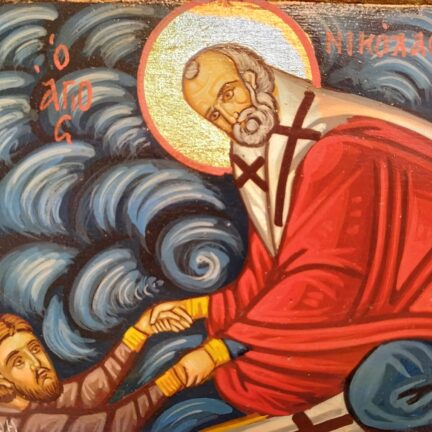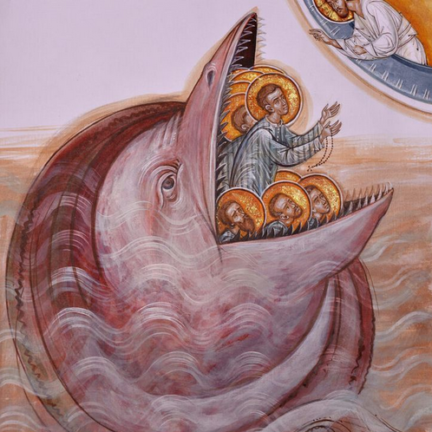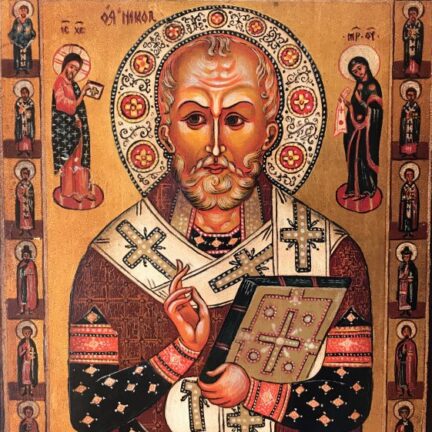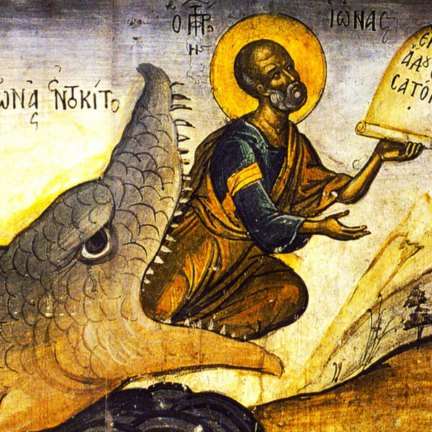Individuation – Alchemy – Mysticism – Zen – The Dark Night of the Soul
Individuation - The Dark Night of the Soul
The dark night of the soul is an experience we have when we experience a loss of meaning. When we encounter a problem or a defeat and collapse, our projections collapse. Our ideas about the world are shattered, and we must now face ourselves. This often leads us to a confrontation with the shadow—the other aspects of ourselves that we previously paid no attention to.
The dark night of the soul can come to us in many different ways. It could be the loss of an important relationship. It could be the loss or change of career. It could be failures in friendships or family. It could be a complete restructuring of our belief system. It could be an encounter with different philosophies, different faiths, or non-belief. It could be a whole series of different defeats or things that drag us down into a kind of depression.
The Black Madonna has a paradoxical effect: she destroys and brings you to the brink of death, then appears in human form to heal you.
The Dark Night of the Soul - Loss of Meaning
However, this depression is experienced as a loss of meaning, as a loss of the things that originally gave us meaning, an idea, or a framework for understanding ourselves and the world. For example, if you are in a relationship and this relationship ends, this relationship, which previously contained an aspect of your identity, has now collapsed. Now, part of your identity has collapsed. How you see yourself in a particular relationship and how you see the other person in a certain way, and how you see yourself in a certain way, has collapsed and disappeared.
The same thing can happen if you leave the church, for example. Your faith, your way of life, your perspective, and your world structure change when you abandon this way of life, this way of believing and seeing the world. The same thing happens when you give up a particular career and leave your current job, or get fired, or something else happens and you have to start changing your work, because the way you imagined yourself acting in the world—the thing that gave meaning and purpose to your everyday tasks—is now taken away from you. So there are many different ways one can fall into this dark night of the soul, but what it primarily brings with it is a loss of meaning.

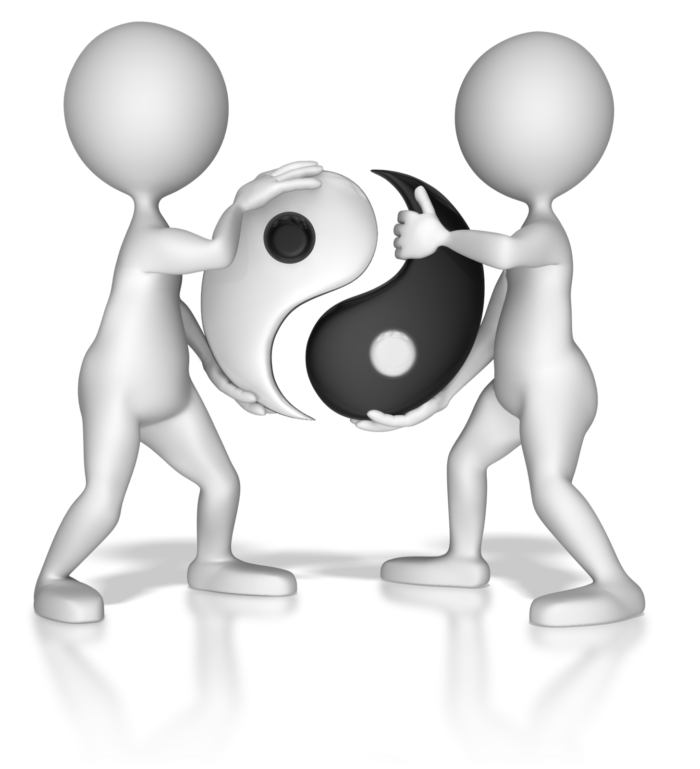
Alchemy - Body & Mind
The dark night of the soul represents the beginning of an individuation process. It is the initial phase of this alchemical process of becoming whole and self-realizing, and the completion of the journey we are on symbolically (archetypically psychologically) and in life. The dark night of the soul is a profound experience. It can, as mentioned, be triggered by many different situations in life, but it occurs at the point where we lose our sense of purpose in life. Why is this?
Projections
It has been described as a process in which the projections we project onto the world are withdrawn. This is the dark night of the soul. It is when our projections are withdrawn from the world or the object. Let's say you are in a relationship, but this can apply in many other ways. Let's say you are in a relationship and you see this person in a certain way. You project onto them aspects of who you think they are. Let's say you're in a relationship where there's a lot of conflict. You're projecting something negative onto them and perhaps not fully recognizing how you behaved in that relationship.
When the relationship ends, you have time to reflect and realize, "Hey, actually, I was projecting that what I thought I saw in that person wasn't really there, but was just a part of me. I was living in a fantasy, I was living in a delusion, I was fighting with myself, I was searching for myself, I was doing things, but in reality, it was a part of me."
Insight - Shadow
This is now an insight, an insight into the projection that has now collapsed, giving us an understanding of the shadow. This is what happens when the projections you have sent out into the world are withdrawn. Then you encounter the shadow, encounter your shadow, right, because you no longer thought that what you projected outward into the world was separate from you or something else. When you now draw the projections from the world back into yourself, you realize that this is actually an aspect of yourself, and this is the dark night of the soul, because it is a loss of meaning, meaning you have withdrawn the projection or the meaning you projected onto the world in which you lived.
Doubt
And then, and there, in this situation, your shadow is revealed, namely your doubts that you have always had about this belief or conviction, and this is the structure of what is happening here. It's a withdrawal of projections, which leads to loss. Revelation and encounter with the shadow. What happens in this moment of encountering the shadow?


Nigredo - Chaos
Well, in the initial stages, it's associated with a lot of confusion. That's why they say the dark night of the soul is something that accompanies confusion. Jung shows that the alchemists have their equivalent of the dark night of the soul, the nigredo, or chaos. It's a confusing state because you've encountered the shadow. It's because the shadow presents the opposite point of view to your consciousness. When you ended a relationship, you thought you were acting a little bit. You thought you were the good guy. But then you realized: Oh no, when I think about it, I did some bad things, and now I recognize my shadow side.
The bad things I did in that relationship. But now you're in a state of confusion because you don't know whether you're good or bad. Because you still consciously know that you've done good things right, but you've also done some bad things, depending on how you know how to determine good and evil in that situation. So what happens is this confusion about who you are because there's a conflict between your conscious perception of yourself and your unconscious perception of yourself, which is your shadow, right, and the shadow that you see is an opposing viewpoint to what you think your morals are, so it threatens your morals.
Morality - Immorality
In a sense, you say to yourself, "Oh, I'm not just this moral being that I consciously perceive, my ego, but now I also see that I'm actually an immoral being, according to the moral standard I've set for myself." So it all depends on your personal constitution and how you structure these things. But it's a counterbalance. For every action, there's basically a counter-reaction in the subconscious. (C.G. Jung) And so it's a counterbalance. But when you realize that you are both, confusion sets in, and you lose connection to the outside world and the inside world, or to what we would call God, or to the self, the archetype of the self. Because the shadow blocks you at that point.
You have to overcome that. And that's the experience of the dark night of the soul, or what the alchemists call nigredo: chaos. You're deep in chaos, nothing makes sense, you don't know which way is up and which way is down. How should I feel? That's the experience you have after a defeat in life.


Unio Mentalis - Union of Soul & Spirit
Alchemists have a kind of answer to this, or that this is part of a larger process. It would be interesting to encounter one's shadow and integrate one's knowledge from there. That sounds great.
- The first phase is the dark night of the soul, or the encounter with the shadow.
- However, this is connected to another interesting process. This process is referred to by alchemists as Unio Mentalis, which is essentially a union of soul and spirit.
Remember how we withdrew projections from the world, and this led to a loss of meaning, which in turn led to an observation and confrontation with our shadow and the subconscious? This process essentially withdraws the soul. Alchemists speak of it as a withdrawal of the soul from the body. So, there is the idea that in the state of nigredo, the soul is connected to the dark elements of the body.
Christian Understanding - Sin - Corrupted Body
And it's important to understand that the alchemists were also Christians. So they believe in the Christian understanding of these things. An understanding of the Christian background will help us understand what's going on here and what psychological implications arise from all this seemingly confusing material. Well, we can see that in Christianity, there's the idea of inherent sin. So the body is essentially born into this inherent sinfulness.
So there's an aspect of the body that's dark or corrupted. The state of nigredo occurs when the soul is entangled with this corrupted body. That's the image we know from Christianity. And that's described by these alchemical processes. So that's the state of nigredo, this massive confuser. The soul is equated with Eros, the feeling, and the spirit is equated with reason or logos. At least, that's an analogy that comes up later in these passages. It helps us understand that our feelings are trapped in the body in this sense. In other words, we are trapped in a kind of fantasy or delusion about the world.
Delusions
Therefore, when we retreat from these delusions to our projections, we essentially experience a separation from the soul, or our feelings, from the body or the world, and this leads to depression. We lived happily in what is called the soul, or in the projection of our mind onto the world. We lived happily in this delusion because it was a feeling that truly guided us. This isn't rational. It's a feeling, a kind of archetypal experience that we live in. When we separate this from the world and realize that the world is different from this delusion that I live in. This is like the unveiling of the mind.


The Spirit Saves the Soul from the Body - Logos
The spirit saves the soul from the body, and that's how it's seen in Christianity. But psychologically, that means it's our rationality, our understanding of the Spirit of Truth, let's say, that saves us. Our Logos helps our Eros to detach itself from a corrupted body. That's the alchemical process. And so, in psychology, you could simply see it as a rational position that destroys all our fantasies. And we understand, oh, that's what was really going on. So, you see, what is thought allows you to understand what something is. Thinking allows you to judge and understand what something is and how it works.
So let's assume you live in a fantasy world that corresponds to your feelings, and you think something about the world, but your fantasy feelings are trapped and corrupted in the world itself, or in a so-called corrupted body. So it's not just about your body, your physical body, but about the world as a whole. So if you live in a fantasy world, it fits this analogy, because the soul is embedded in a corrupted body, and the mind helps free the soul from the corrupted body.
Just as you think correctly and objectively understand how things work through your thinking and rationality, you think, "Oh man, I was really an idiot in that relationship." Or, "Oh, of course the job didn't work out." Or, "I now understand how the job works because I use my rationality. That's how it works." Or, "There was a psychopath who dominated that area." And of course, I felt bad.
You become sober - Unio Mentalis
So, you essentially become sober and experience the reality of the situation in a sobering way by using your thinking. And this thinking essentially rescues the feelings that were entangled in the situation you were in, be it the relationship, the job, the belief system, or whatever other breakdown of meaning you have. But what then happens is that the alchemists have this idea of Unio Mentalis, which I described earlier.
The definition of Unio Mentalis is when soul and spirit unite to overcome the body. Psychologically, we can understand this as our thinking and feeling coming together to shatter and overcome any delusions or projections we impose on the world. Because we now understand what things are and how we feel about them. This leads to a deeper understanding of ourselves. This is a key element of mental unity. Mental unity, where mind and soul come together, where our thoughts and feelings come together, helps us overcome the situation in which we are trapped. So, what you want is the union of thought and feeling.
Alchemical Process
In Jung's analysis of alchemy, he recognizes the psychological significance of this alchemical process. And this alchemical process is the first step. It involves the union of mentality, thought, and feeling, the coming together to overcome the body, especially its corruption. So, the body is sinful. In Christianity, there is the idea that we are all born in sin.
In this religious sense and in the alchemical sense, this means that there is a kind of truth hidden within the body. This also suggests the idea that if I withdraw the projections, I can see the truth, or the truth hidden in the shadow or corrupted side of the body. The first phase is self-realization


Self-awareness - I know where I belong - I know what's good for me
But how do you actually ensure you take the next step? Well, what happens is the unio mentalis, the connection between mind and soul, or thinking and feeling in this example. It gives you self-awareness. In every situation you find yourself in, it is self-awareness that keeps us able to avoid falling back into it. I know where I belong. I know what's good for me. Having a good understanding and connection to your own heart means understanding what is actually good for you. And when I think better, I understand what actually happens, how people function, what actions, words, thoughts, and feelings actually occur and have an effect in this relationship.
In other words: You understand the patterns of how you yourself function. You gain self-awareness through the combination of thinking and feeling. You understand yourself very well and realize that you have insights into all aspects of this equation: how you feel and what you were missing. You didn't know you felt that way, but now you do, or you think you didn't understand because you couldn't see it and how it worked, but now you understand how it works, and you understand the logic of the situation.
On both sides of the aisle, these revelations, let's say these insights, come to you. You gain deep self-knowledge when you experience the unio mentalis union because you integrate these fundamental aspects of yourself and experience this transformation.
Existential Outcome in Life
This real change happens through this process. It's not just a theoretical thing, but an actual experience that you go through. Yes, you see it in dreams and such, but it actually leads to a tangible, existential outcome in your life. From this experience, where thinking and feeling come together, comes a great expansion of self-awareness.
From this experience, you understand yourself better, and that's what understanding the shadow is all about. It's about understanding yourself better. It's not, as some people think, just implementing the dark side. Most of the time, it can be that way, but it doesn't necessarily have to be that way. It's not necessarily just about using more aggression and letting it work for you—that could be part of it—but rather the principle of the things you've left out.
Shadow
A criminal who seems very aggressive by nature might be kinder and gentler in their shadow. Maybe he's integrating this gentleness he didn't know he had because he always associated it with his ego as this rough, tough guy. And maybe now he's actually integrating some gentleness into his life and saying, "Yes, maybe I'm actually a little gentle too and can be like that." So it's not just about darkness, dark, bad things. Darkness means ignorance; it means things you didn't know about yourself. So darkness can actually be a very positive and good thing.


Integration of Your Thoughts and Feelings
So what happens with this process is that you achieve an integration of your thoughts and feelings, which gives you immense insights. But that's only the first step, as Jung says, essentially only the first step of the alchemical process, because it gives you insights. But what is being done in alchemical language? The soul is taken out of the body, the spirit takes the soul out of the body, and spirit and soul form the unity, but the body is lifeless, the body is without life. If you just think about the Christian idea that a soul lives in a body, and what does the body do? It has no life, because what gave life to the body was the soul. And what happens now? We move to the second stage.
Second Stage - Reintegrating the Soul into the Body
And the second stage is that you have to reintegrate a spiritually fulfilled soul into the body, like a redeemed body. That's what they tried to do in Christian imagery, with the resurrection of Jesus. But Jung talks about how there's obviously a failure here, because even though this great event happened with Christianity, we still seem to be in this state in which we live, even though Christ came and rose again. Even after this event, we still live in this state of being trapped in this kind of corrupted body.
The Integration of Insights
So the next step is the integration of the insights gained from self-knowledge, which you gain through the integration of thinking and feeling. You have to translate these insights into reality and actually live them now. That means having this mental unity. Now come back to the unity with the body. We must now translate this insight into reality, otherwise it simply remains in this potential state. You have this potential because you have this insight about who you are. In other words, you have learned from all the experiences.
I have had all these different experiences in my life and learned something about myself from each one. But if I fail to apply this insight in my next relationship, or the next time I start work, or the next time I try to explore, understand, and build my belief system, or the next time I do whatever, then I fail to apply the wisdom I could have learned, the wisdom I could have lived in real life. In reality, I fail to reunite the spiritually fulfilled soul with the body.
That is the process that must take place. So the alchemists were looking for that, or perhaps eternal life; perhaps the elixir could grant them eternal life. Why? Because it's a kind of chemical equation, a kind of secret they were trying to unlock, to... that would enable the redemption of the body,... that would enable the reunification of spirit and soul with the body.


Actually Living Wisdom
Actually living wisdom means putting these insights into practice. In the dark night of the soul, you experience this state of meaninglessness, this collapse of your beliefs. You may be confused for a while, but as you go through this process and try not to get trapped in your delusions again, you give yourself more knowledge about yourself.
Through this process of projecting your shadow of what the unconscious brings you, you can learn to show yourself whether you can learn more about it. This leads to you gaining more knowledge about yourself and the ability to apply wisdom to the world because you not only know how to do things through thinking or relying on your feelings, but also how to bring them together to understand how you feel and how things are in the world, and you can walk the middle path, the path of wisdom.
To realize your full potential
So you're not living some strange, obscured viewpoint, but living a more realistic understanding of what's going on, through an understanding of who you really are in many ways. That's essentially what this process is about, on the path to individuation, to self-actualization. To realize your full potential. And you do that by bringing light into the darkness within yourself and in your life, and that helps you not just sit in your living room, but actually in the real world, to do really concrete things, right?
Because you understand how you function - You understand the patterns
It helps you rebuild good relationships and be successful in your career and life. Because you understand how you function, you understand the patterns you're stuck in and why you're stuck in them, and how to get out of them, how to transform and change. At the very least, it shows you what you need to address, what problems you have, and what strengths you need to pay attention to and use.
It reveals a deep understanding of yourself. And when you really understand yourself well, you know what to do in every situation. At the very least, you know how to react to what's happening. Because you understand your abilities, your weaknesses, you understand what you can do, how you move, how you act, how you function, what patterns bind you, and what people can bind you. So when you understand it, it's harder to fail. Because you've learned from the past, but you've learned in a unique way about yourself.


Final Stage - Image of God - Unio Mystica
The third and final stage the alchemists speak of: And essentially, it's about not only becoming the ultimate individuated human being, which is something like the second stage, namely individuation, where mind and soul reunite with the body, and you become this kind of individuated person. According to these alchemists, the third stage is also the one in which you unite with God. You not only individuate yourself in this way in this world, but you fulfill this greater purpose beyond all of this in another way. In a way, it gives you this sense of the transcendent, the idea that what you're doing has some kind of ultimate meaning that goes beyond even what's going on here.
There's something about this thought, which gives us this comfort, that seems even more ultimate than self-realization in a physical space and at a specific time. And after that, nothing happens. Instead, one realizes oneself in this space and at this time. And that is somehow significant for God, that is somehow significant for the archetype of self. Not only does the spiritual union take place within oneself, but also within the God-image. So, in a sense, there is a connection between our lives and actions and the greater experience or God-image. We are somehow involved in this experience, and it is described as all in one and one and all.
So, what happens in the micro-level also happens in the macro-level. In this sense, we get this sense of the relationship between our personality and the greater personality, or what is called the self or God-image. There is not only a transformation within ourselves, but also a transformation in the God-image. And that is actually also an aspect of our self, which we see as the greater personality within ourselves, to which we are all somehow connected.
The Four Stages of Transmutation in Alchemy
The four stages of transmutation in alchemy describe the transformative process of the primordial material to create the Philosopher's Stone. Psychologically, this corresponds to the process of individuation, which involves a greater awareness of one's own wholeness and the realization of one's true personality. The four stages of alchemy are:
- Nigredo
- Beo
- Cittis
- Rido.
In some alchemical systems, these four stages are reduced to three, with the last two stages becoming a single stage. Therefore, there are various representations of this alchemical process. The dark knot of the soul corresponds to the alchemical stage of Nigredo. It is not immediately obvious why this dark state deserves special praise, as Nigredo is generally considered gloomy and melancholic, reminiscent of death and the grave.


Mysticism - The Dark Radiance of God Penetrates and Purifies the Soul
The fact that medieval alchemy had connections to the mysticism of the time, or rather was itself a form of mysticism, allows us to consider the writings of Saint John of the Cross on the Dark Night of the Soul as a parallel to the Nigredo. This author conceives of the spiritual night of the soul as an extremely positive state in which the invisible and therefore dark radiance of God penetrates and purifies the soul.
Jung also connects the Dark Night of the Soul with the process of individuation when he states, in very different language, that John of the Cross, in his presentation of the Dark Night of the Soul, made the same problem more accessible to Westerners. However, we consider it necessary to draw analogies with psychopathology and both Eastern and Western mysticism.
The individuation process is a borderline phenomenon psychologically, requiring special conditions. To become conscious, we can now understand that the beginning of the individuation process corresponds to the alchemical phase of the nigredo. John of the Cross further illustrates this in his account of the dark night of the soul. Understanding that the dark night of the soul is the alchemic equivalent of the nigredo, we can look at what Jung says about the nigredo and gain insight into how to complete this phase of individuation.
This will help us overcome the dark night of the soul and move on to the next phase of the alchemical process, which means we can continue our individuation and reach higher levels of development.
Unio Mentalis - Fate's Demand for Self-Knowledge
The importance of developing the unio mentalis becomes clear when Jung states that the goal of the process is the unio mentalis: achieving complete knowledge of the highs and lows of one's own character. If the demand for self-knowledge is desired and rejected by fate, this negative attitude can lead to death. The demand would not have been made of this person if they had still been able to pursue a promising path.
However, they find themselves in a dead end from which only self-knowledge can free them. If they reject this, no other path is open to them. They are usually unaware of their situation, and the more unaware they are, the more exposed they are to unforeseen dangers. They cannot avoid a car while climbing a mountain. Somewhere out skiing, they lose their footing. They believe they can just barely manage a difficult slope, and when they become ill, they suddenly lose the will to live.
Unio Mentalis - Death Motive
The subconscious has a thousand ways of extinguishing a meaningless existence with surprising speed. The connection between the unio mentalis and the death motive is therefore obvious, even if death only exists in the feeling of spiritual progress. This warning emphasizes the importance of heeding the call to develop self-knowledge. This means that if one fails to develop the unio mentalis, one exposes oneself to the risk of actual death, or at least the feeling of spiritual or psychological progress.
One thus remains stuck in one's problems, unable to see through one's shadow, and suffering in one situation after another. This is why it is so important to approach the attainment of self-knowledge, and developing the unio mentalis enables one to achieve this self-knowledge.
We can see that developing the unio mentalis is a psychic union of your intellect with your emotions. It is this union of opposites that increases self-knowledge and helps you develop personal maturity. The findings should then actually be put into practice.


Unio Naturalis - Inseparable Interweaving of the Soul with the Body
The original semi-animal state of the subconscious was known to the adept as nigredo, chaos, confuser, an inseparable interweaving of the soul with the body, which together formed a dark unity, the union naturalis. He had to free the soul from this spell through separatio and establish a spiritual, psychic counterposition—a conscious and rational insight that would prove immune to the influences of the body. But such insight, as we have seen, is only possible if the deceptive projections that obscure the reality of things can be withdrawn. Then the unconscious identity with the object ceases, and the soul is freed from its attachment to the sensory world.
Unio Mentalis - Meditation
The ego personality deals with its own background. The shadow corresponds to the union of mind and soul in the Unio mentalis, the first stage of consciousness. Alchemists call this meditation. From this, we can recognize the two states. The first state is the Unio naturalis, in which the soul is in a so-called dark unity with a corrupted body. This is similar to your failed life situation, whatever it may be. You were stuck in your projections, haven't yet integrated your shadow, and need self-awareness to escape your situation and avoid falling back into the same patterns you've repeated your entire life.
When you repeat these mistakes, you fall into chaos. Within this darkness, however, is your soul, which feels separated from the body, which represents your situation in the world you now experience. To escape the dark night of the soul, you needed insight and self-awareness. To achieve this insight, one must develop the unio mentalis, the second state, the union of mind and soul, or the union of reason and emotions. This creates a psychic counterposition that helps free emotions from the situation. It helps observe the objective situation and conduct critical self-observation. Thus, the soul merges with the mind. Your emotions are now united with your rational insight. This is the development of the unio mentalis and the first stage that helps overcome the dark night of the soul.


Overcoming the Body through the Mental Union
We conclude that meditative philosophy consists in overcoming the body through the mental union of the Uno mentalis. This first union does not yet constitute the sage, but only the mental discipline of wisdom. It is significant for alchemy as a whole that mental union was not the culmination, but merely the first stage of the process. The second stage is achieved when mental union, i.e., the union of mind and soul, is united with the body. The second step on the path to creating this substance was the reunion of mind and body. There were many symbols for this process.
Unus Mundus
The second stage of union, the reunion of the unus mundus with the body, is particularly important, since only from this point can complete union be achieved. Union with the unus mundus, the reunion of the spiritual position with the body, obviously means that the insights gained should be realized. An insight could just as easily remain suspended if it simply goes unused. The second stage of union, therefore, consists in bringing the person who has gained a certain knowledge of their paradoxical wholeness into reality. In the second stage, you have moved beyond the dark night of the soul and have now integrated everything you have learned from this experience into your life.
You have gained insights through the union of your thinking and feeling, your spirit and soul, Logos and Eros. You now act on these insights and live them out in reality. You allow what you have learned to flow into your personality so that you can truly become a wise person. You have transformed the connection of opposites within you and the resulting results into reality. In this way, you not only become wise and lead a life of wisdom, but also extraordinarily powerful, for the tension of opposites within you gives rise to a creative energy or force.
And this is obviously powerful, because the unconscious libido now flows into the conscious mind, and this energy helps you actually live a wise life. Your ability to live a wise life therefore always depends on this connection to the unconscious. This is the idea of the psychodynamics of the mind.
Symbols - Knowledge of Paradoxical Wholeness - Unio Mystica
The unconscious attempts to express paradoxical unions of opposites through abstract inner symbols. Symbols can be thought of as the language of the unconscious, but they are much more than mere messages for communication. They are living symbols of psychic unconscious energy that represent and convey inner transformations. Symbols are part of our inner reality and phenomenology. This is why Jung said that one of the most important symbols for this second phase of transformation was the mystical marriage.
The profound observation is that a marriage is a union between opposites, and this inner symbol also literally fulfills the function of uniting the opposites in a practical sense. You may encounter these symbols in your dreams or in other meditative states where you have greater access to unconscious content. Truly religious symbolism, which we see depicted in art or expressed externally, is a projection of this inner image found in so many of these religious symbols. It originates from within; it is not consciously constructed.
Meditation
When you meditate or use other known methods to access the unconscious, you will perceive these inner images as facts of the psyche. Just as you look outward and see this and that as facts in the world, you will also look inward and see these images as facts.


The Reunion of the Unus Mentalis with the Body
The second stage of conjunction—the reunion of the Unus Mentalis with the body—is particularly important, as only from this stage can complete union with the Unus Mundus be achieved. In a related passage, Jung reinforces this point when he states: But the completion of the Mysterium con anus can only be expected when the unity of mind, soul, and body becomes one with the primordial Unus Mundus.
Unus Mundus - Unity of the World
So what is the unus mundus? The unus mundus is the primordial, undifferentiated unity of the world, or the primordial unconscious. The third and highest degree of conjunction is the union of the whole human being with the unus mundus. By this, Jung meant, as we saw in the potential world of the first day of creation, when nothing was yet in action, i.e., divided into two and many, yet still one.
The creation of unity through a magical process meant the possibility of bringing about a union with the world—not with the world of diversity as we see it, but with a potential world, the eternal ground of all empirical being. Just as the self is the ground and origin of the individual personality in the past, present, and future, based on a self generated by means recognized through meditation.


Image of God
The process of uniting opposites within oneself corresponds to the uno mentalis, which takes place in God or in the archetype of wholeness or self. Through meditation, one is said to be able to attain knowledge of the self.
Contrary to the modern prejudice that self-knowledge is nothing other than knowledge of the ego, the mystics and alchemists viewed the self as a substance incommensurate with the ego hidden in the body and identical with the image of God.

